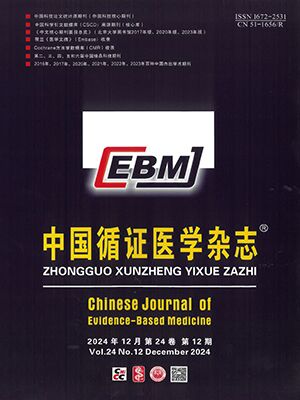Objective Investigate the effectiveness of problem-based learning (PBL) in teaching of evidence-based medicine for undergraduates.
Methods Participating students from four of eight classes with major of clinical medicine in Grade 2006 were assigned to the lecture-lased learning (LBL) group (50 students) and the PBL group (46 students), and each group had two classes. The examination scores, questionnaire, and seminars were used in combination to evaluate the teaching effectiveness. SPSS 11.5 software was used for statistical analyses.
Results The baseline characteristics were balanced between the two groups because no difference was found in aspects of taking part in literature or information retrieval training, research project, undergraduate starting an undertaking plan and social survey, as well as getting known of evidence-based medicine, clinical epidemiology and PBL. The evaluation results of teaching effectiveness showed that, a) About the examination score, there was a significant difference between the two groups (P lt;0.05); the score of the PBL group was higher than that of the LBL group in aspects of fundamental knowledge, issuing question, retrieving evidence, evaluating evidence, applying evidence and total score; and b) About the attitude towards LML, there was a significant difference between the two groups about whether the LBL was beneficial or not to improve positive study, study interest, participation willingness, aggregate analysis ability, speech ability, self-study ability, information acquisition ability, information analyses and utilization ability, problem analyses and solving ability, combination of theory and clinic, communication between teachers and students, team cooperation and so on; but there was no significant difference between the two groups (P gt;0.05) in aspects of improving learning efficiency, better understanding theory leader from class, improving writing ability and practicing ability; 97.83% of the students in the PBL group thought that PBL was suitable for themselves which should be introduced into other course teaching; 48.00% of the students in the LBL group thought that the current LBL teaching mode was not suitable for undergraduate, while 28.00% of the students in the LBL group thought that the current teaching mode should get reformed.
Conclusion The PBL teaching mode is beneficial for undergraduates to better training clinical thinking, improve the ability of problem construction, aggregate analyses, literature retrieval, language express and exploratory innovation, and fully improve the quality of evidence-based medicine teaching. The PBL teaching method is suitable for teaching of evidence-based medicine for undergraduate medical students.
Citation: TIAN Jinhui,LIU Aiping,SHEN Xiping,YANG Kehu. Evaluation on Effectiveness of PBL in Evidence-Based Medicine Teaching. Chinese Journal of Evidence-Based Medicine, 2011, 11(1): 39-43. doi: 10.7507/1672-2531.20110008 Copy
Copyright © the editorial department of Chinese Journal of Evidence-Based Medicine of West China Medical Publisher. All rights reserved




